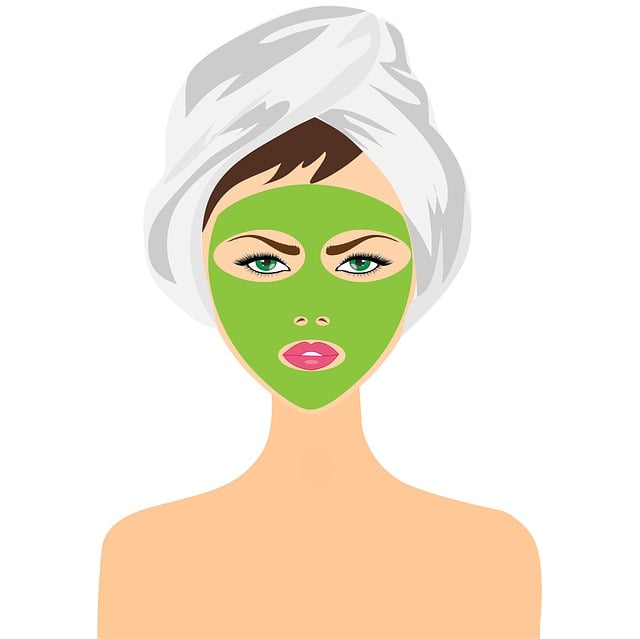Skin tags, benign growths appearing on various body parts, are commonly removed for cosmetic reasons. Birmingham Tag Removal methods include professional procedures and home remedies. Popular DIY approaches involve ingredients like apple cider vinegar, garlic, duct tape, essential oils, and natural compresses. Sterile tweezers, freezing with liquid nitrogen, over-the-counter creams, and advanced techniques like cryotherapy and laser treatments are available from dermatologists in Birmingham for persistent or larger skin tags.
Looking to get rid of those pesky skin tags at home? This comprehensive guide explores effective methods for safe skin tag removal, from understanding their causes and types to natural remedies and DIY techniques. Learn about essential oils, homemade treatments, and simple tools that can help eliminate skin tags. Plus, discover when it’s time to consult a professional for expert Birmingham Tag Removal services.
- Understanding Skin Tags: Causes and Types
- Home Remedies for Safe and Effective Removal
- Essential Oils and Natural Treatments
- DIY Skin Tag Removal Tools and Techniques
- When to Seek Professional Help in Birmingham
Understanding Skin Tags: Causes and Types
Skin tags, also known as acrochordons, are small, soft skin growths that typically appear as harmless bumps on various parts of the body, most commonly the neck, armpits, and groin area. They can vary in size, from a few millimeters to over a centimeter, and often resemble little pieces of hanging skin or tags. While they are generally benign, many people choose to remove them for cosmetic reasons or because they find them bothersome.
There are several types of skin tags, with the most common being acral tags, which often occur on the hands and feet. They can also be categorized based on their appearance: thin, small tags that hang loosely; thick, warty-looking tags; or cluster-like groups of tags. In Birmingham Tag Removal is a sought-after procedure for those aiming to get rid of these growths at home, offering a simple solution for aesthetic concerns related to skin tags.
Home Remedies for Safe and Effective Removal
Many people opt for home remedies when it comes to removing skin tags, especially if they’re seeking a safe and effective solution without the need for professional Birmingham Tag Removal. Some common kitchen ingredients have been shown to be potent in eliminating these small, harmless growths. For instance, applying apple cider vinegar directly to the skin tag can help dissolve it over time due to its acidic nature. Similarly, garlic contains allicin, a natural compound with antimicrobial and anti-inflammatory properties that can aid in drying out and removing the skin tag.
Another popular method involves using duct tape. This simple technique involves covering the skin tag with a small piece of duct tape for several days, which can cause the skin tag to fall off. The idea is to create a sort of ‘suction’ action that disrupts the blood supply to the tag, leading to its eventual detachment. It’s important to be patient and consistent when trying these home remedies, as results may vary from person to person.
Essential Oils and Natural Treatments
Many people opt for natural treatments and essential oils as an alternative to professional Birmingham Tag Removal. Certain essential oils, like tea tree oil and lavender, have anti-inflammatory properties that can help reduce the size and appearance of skin tags. Applying a few drops of these oils directly to the affected area may provide some relief and potentially eliminate them over time.
Additionally, natural remedies such as apple cider vinegar or garlic compresses are believed to be effective. Soaking a cotton ball in apple cider vinegar and gently rubbing it on the skin tag can create an acidic environment that may facilitate its disappearance. Similarly, crushing raw garlic and applying it topically has been shown to have anti-growth effects on skin tags due to its natural antimicrobial properties.
DIY Skin Tag Removal Tools and Techniques
When considering DIY skin tag removal, there are several tools and techniques available for a Birmingham tag removal approach. One popular method involves using a pair of sterile tweezers to carefully twist and pull the skin tag away from the underlying skin. This requires precision and cleanliness to prevent infection. Alternatively, some people opt for at-home freezing methods using liquid nitrogen, which can be effective but should only be attempted under professional guidance to avoid severe damage.
Another DIY option is using over-the-counter salves or creams containing ingredients like iodine or calcium hydroxyide. These products work by drying out the skin tag, causing it to shrink and eventually fall off. It’s crucial to follow instructions carefully and monitor for any signs of irritation or infection. Additionally, some individuals turn to natural remedies like apple cider vinegar or garlic paste, applying them directly to the skin tag with a cotton ball, but scientific evidence supporting their efficacy is limited.
When to Seek Professional Help in Birmingham
While many people prefer to remove skin tags at home, there are instances where it’s best to seek professional assistance, especially for larger or persistent tags. If your skin tags cause discomfort, bleeding, or if you notice any changes in their appearance, such as an increase in size or color, it’s advisable to consult a dermatologist in Birmingham for Birmingham Tag Removal.
Professional removal offers several advantages, including the use of advanced techniques like cryotherapy or laser treatments that can provide more precise and permanent results. A qualified dermatologist will also be able to diagnose any underlying skin conditions that may require specialized care, ensuring your skin health is thoroughly addressed.
Whether you’re seeking to remove skin tags at home or considering a Birmingham tag removal procedure, understanding your options is key. This article has equipped you with valuable insights into different methods, from natural remedies and essential oils to DIY tools and techniques. Remember, while home treatments can be effective, certain cases may require professional intervention. For reliable and safe removal in Birmingham, consulting a specialist is always recommended.
